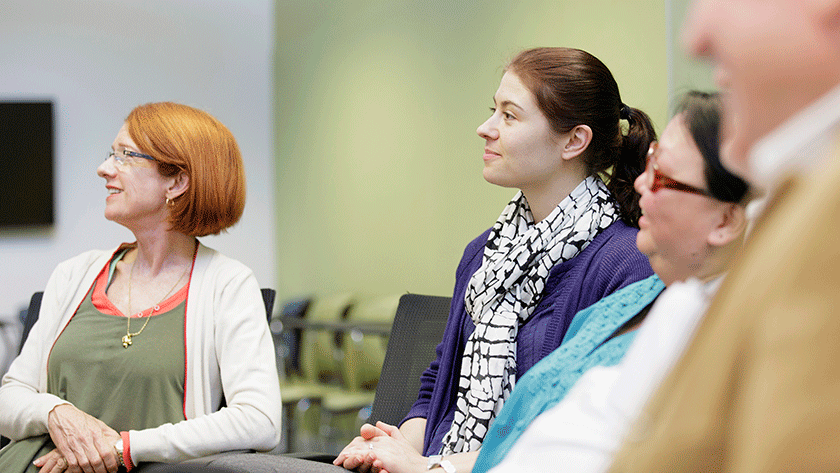- Our services
- Mental health and therapy
- Social support groups
 Our services
Our services
-
- Anger management
- Anxiety
- Art therapy
- Gambling addiction
- Bipolar disorder
- Depression
- Drug and alcohol addictions
- Electroconvulsive therapy
- Mindfulness
- Mood disorders
- Mother and Baby Unit
- Obsessive compulsive disorder
- Perinatal mental health
- Personality disorders
- Pharmacy
- Post-traumatic stress disorder
- Psychotic disorders
- Schema therapy
- Sensory and writing groups
- Social support groups
- Transcranial Magnetic Stimulation - rTMS
- Community and youth
Social support groups
Social support groups can help you connect with others, build your social skills and teach you strategies to manage day-to-day activities.

Our social support groups are provided in a relaxed group setting where you will be able to meet others seeking support.
About social support groups
Our groups focus on a range of activities, such as:
- building social skills by taking part in group activities – this may include being involved in a debate or discussion with others, which can help you find your voice and communicate your thoughts and feelings
- team building sessions and activities bringing you together with others, such as group walks or watching a movie with others
- gentle exercise sessions that may include stretching or relaxation techniques
- education sessions that may focus on topics such as anxiety or good sleep practices to help you better manage your health and wellbeing.
Some group sessions will also involve guest speakers, such as a dietitian to discuss healthy eating and healthy habits.
You may be referred to a social support group by a psychiatrist.
Benefits of social support groups
Social support groups can benefit you if you need help going about your daily activities. The groups can help you learn better life skills, such as cooking and cleaning. It also improves general independence and motivation.
The main goal is to work with you to improve your sense of feeling, belonging and connectedness with others around you.
These benefits depend on your particular circumstances and require you to fully participate in necessary care and management. You should consult a specialist in this area before deciding whether treatment is suitable for you.
You may be interested in
